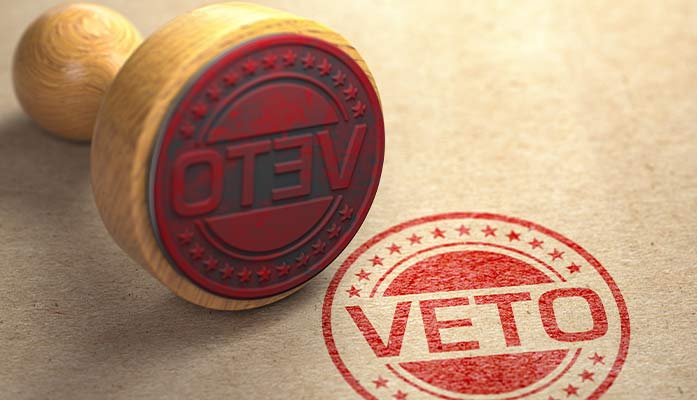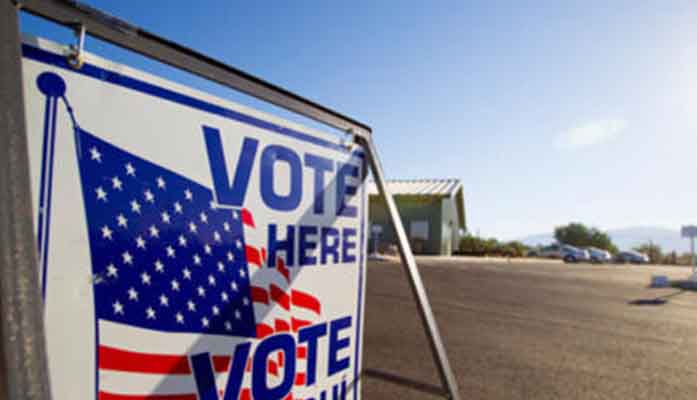
by Terri Jo Neff | Jul 27, 2022 | News
By Terri Jo Neff |
A judge will decide next week whether Arizona voters will see an initiative on the Nov. 8 General Election ballot to approve what the Arizona Free Enterprise Club calls “radical” election procedure changes.
Judge Joseph Mikitish of the Maricopa County Superior Court has set Aug. 5 for a hearing on an Order to Show Cause as to why he should not grant a request by the Arizona Free Enterprise Club (AFEC) to invalidate more than half the signatures submitted earlier this month on initiative petitions for the proposed Arizonans for Free and Fair Elections Act (AFFE Act).
Mikitsh’s hearing stems from a lawsuit filed July 22 by AFEC, which argues the AFFE Act would upend Arizona’s election administration and voter registration laws, curtail current safeguards with the initiative and referendum process, and reduce candidate contribution limits while promoting more taxpayer subsidies to certain ‘Clean Elections’ candidates.
According to AFEC’s lawsuit, the political committee Arizonans for Free and Fair Elections (ADRC Action) filed an application in February with Arizona Secretary of State Katie Hobbs for a serial number necessary to commence a petition drive in hopes of getting the Arizonans for Free and Fair Elections Act on the statewide ballot for the 2022 General Election.
Then on July 7, Hobbs was presented with nearly 52,000 petitions sheets containing a purported 475,290 signatures of qualified electors, of which at least 237,645 must be deemed valid to get the AFFE Act on the general election ballot.
But state law requires that all circulators who are not Arizona residents along with all paid circulators regardless of residency must register as circulators before they may begin collecting petition signatures. The circulators must also affix their unique circulator registration ID number to each petition they circulate.
AFEC contends, however, that more than 1,000 of the circulators who collected signatures for the AFFE Act initiative were non-compliant with at least one state election law. Some of the compliance issues involved incomplete registration forms while other circulators allegedly did not write their “full and correct registration number on both sides of the sheet,” as required by law.
The lawsuit seeks a court order requiring Hobbs to disqualify all petition signatures obtained by circulators who were not registered in compliance with state law. It also asks Mikitish to bar the state’s 15 county recorders from verifying any signatures on petitions in which the circulator’s registration number was not properly affixed.
“Petition signatures obtained by individuals who failed to strictly comply with
one or more provisions of applicable law are legally insufficient,” the lawsuit states. “Injunctive remedies are necessary to prevent irreparable injury to the
Plaintiffs and to ensure that the Defendant fully and effectively discharges the duties imposed upon her by state law.”
The lawsuit does not supply a tally of the disputed signatures, but AFEC’s Executive Director Scot Mussi said Monday that well over half of the signatures submitted by ADRC Action were collected in violation of Arizona law.
“That should be more than enough to invalidate this initiative,” Mussi said.
Among the provisions of the Arizonans for Free and Fair Elections Act is one which would restrict legislative election audits such as the one Senate President Karen Fann approved last year. It would also allow same-day voter registration
In addition, it would prohibit any law being enacted calling for voters to show identification when dropping off a mail-in ballot at a polling station or election center.
Another provision of the Act is a requirement that elections officials accept tribal IDs when registering voters and confirming their voting eligibility, even though county recorders do not have access to tribal membership databases.
Election-related legal challenges are heard by the courts on an expedited basis. Mikitish’s show cause hearing comes more than three months before the Nov. 8 election, but the case must be resolved by the end of August to ensure the counties have sufficient time for printing and delivery of early ballots and ballots which are sent to voters under the Uniformed and OverseasCitizens Absentee Voting Act.
Even if the AFEC legal challenge fails, many elections observers doubt that voters will approve the initiative. The problem, they note, is that the Act includes so many different provisions that voters will find enough objectionable that they will reject the whole initiative.
Co-plaintiffs in the case are AFEC’s Mussi and Aimee Yentes, both of whom are registered voters in Arizona. Meanwhile, Arizonans for Free and Fair Elections (ADRC Action) has been named as a Real Party in Interest in the lawsuit.
AFEC is an Arizona nonprofit corporation organized and operated for the promotion of social welfare, within the meaning of IRS Code of 1986, section 501(c)(4). The organization engages in public education and advocacy in support of free markets and economic growth in the State of Arizona.

by Corinne Murdock | Jun 23, 2022 | News
By Corinne Murdock |
With one week to go before the end of the fiscal year, the Arizona legislature managed to reconcile enough differences to pass a finalized version of the budget. However, Republican legislators opposed to the historic $18 billion budget have reported that the controlling party made the budget more palatable for members across the aisle rather than those of their own party.
Although Democratic legislators initially expressed great frustration about the budget, it appears that they may have feigned their opposition — the overwhelming majority of Democrats voted for the budget.
State Representative Jacqueline Parker (R-Mesa) was one of the legislators that voted against the budget. In a Thursday interview with “Conservative Circus,” Parker talked openly about the backdoor proceedings that went on over the last week, claiming that GOP leadership and Governor Doug Ducey gave Democrats what they wanted at the cost of Arizonans’ best interests.
All throughout Thursday’s voting, Parker offered updates on floor proceedings. She noted the shared levity between the Republicans and Democrats as the total expenditures added up with each bill passed.
Parker also noted that the budget received near-unanimous support from Democrats — unique, since Democrats normally have opposed past Republican-majority budgets.
Contrary to assurances from House Appropriations Committee Chairwoman Regina Cobb (R-Kingman) that the budget would enable the state to “weather the storm” of a future recession, Parker said that the budget provisions would bankrupt the state in a recession.
“Spending is colossal, there are no massive tax cuts, and it’s exceeding our actual fiscal revenues. We’re looking at, probably, future bankruptcy as a recession comes forward,” said Parker.
Parker said that several others brought these concerns to Republican leadership prior to floor votes, but that they were ignored. The representative reported that the leaders were more interested in pleasing Democrats than with working out a conservative budget.
“Leadership essentially just said, ‘It’s easier to just go buy Democrats,’” recounted Parker. “They bought them to the tune of six billion more dollars.”
Although school choice advocates touted the universal expansion of the state’s Empowerment Account Scholarship (ESA) Program, Parker reported that Governor Doug Ducey subverted those efforts. Parker said that she and other unnamed legislators received a 2 am call warning that the ESA expansion came with a “poison pill” from the Ninth Floor.
“Ducey has made an agreement with the Democrats that if they don’t refer the ESA bill to the ballot or challenge it in court within the 90 day period, they’re going to extend the aggregate expenditure limit forever, indefinitely,” said Parker.
Parker warned that this secret deal would lead to education expenditures that would break past the 50 percent limit and possibly take over the entire budget.
One of the contentious aspects of the budget was the expansion of homeless shelters throughout Arizona suburbs. State Representative Joseph Chaplik (R-Scottsdale), another one of the lone Republicans who opposed the budget alongside Parker, lamented that the budget policies would turn the state into another California.
Another was the tax credits to entice the film industry to come to the state. The last similar tax credit program bled the state of millions of dollars leading up to the 2008 recession.
Corinne Murdock is a reporter for AZ Free News. Follow her latest on Twitter, or email tips to corinne@azfreenews.com.

by Terri Jo Neff | May 29, 2022 | News
By Terri Jo Neff |
In his first veto of the 2022 legislative session, Gov. Doug Ducey unexpectedly shot down an election integrity bill introduced by Rep. Joseph Chaplik (R-Scottsdale) with overwhelming support of the House Republican caucus.
House Bill 2617 dealt with the removal of voters from each county’s voter rolls, focused on non-U.S. citizens and non-Arizona residents. But Ducey announced his veto in a letter to Senate President Karen Fann and House Speaker Rusty Bowers. on Friday.
“Our lawfully registered voters deserve to know that their right to vote will not be disturbed without sufficient due process,” Ducey wrote. “This provision leaves our election system vulnerable to bad actors who could seek to falsely allege a voter is not a qualified elector.”
Chaplik’s HB2617 mandated county recorders to remove voters from their rolls based on a “reason to believe” the voter is not a U.S. citizen or a resident of the county. Such removal could not occur until the end of a detailed process which ensured the voter in question had 90 days to present satisfactory evidence that the person is in fact qualified to vote in their registered county.
The bill also included new reporting requirements for all jury commissioners and the Arizona Department of Transportation to help identify people who may no longer be eligible to vote in a specific county or were never eligible to vote in Arizona.
However, Ducey’s veto letter pointed to several concerns with the legislation, including the level of proof threshold.
“The subjectivity of this provision, as well as a lack of guardrails against false claims, included in H.B. 2617 leaves voter registration susceptible to being canceled based on fiction rather than fact,” Ducey wrote to Fann and Bowers.
But Ducey’s criticisms did not sit well with supporters who saw Chaplik’s bill as a much needed and long overdue opportunity to establish confidence in the legitimacy of Arizona’s voter rolls.
AZGOP chair Kelli Ward called Ducey’s move “unAmerican” while Rep. Jacqueline Parker (R-Mesa) tweeted that the governor “apparently wants dead people to be able to vote again.”
Sam Stone, former Phoenix city staffer and current city council candidate, was “hugely disappointed” in Ducey’s veto and questioned the governor’s motives.
“Cleaning up our voter rolls is essential to secure elections,” Stone tweeted. “There is not one legitimate reason to leave people who have died or moved on our voter rolls, especially with automatic vote-by-mail.
Stone further suggested “the only reason to leave people who have died or moved on our voter rolls” is to commit voter fraud.
Ducey’s veto brought forth a more detailed rebuke from the Arizona Free Enterprise Club (AFEC).
“Contrary to what is stated in the veto letter, #HB2617 provides ample safeguards to ensure eligible voters do not have their registrations improperly cancelled,” AFEC tweeted after the veto was announced. “In fact, the bill stipulates that counties must confirm that the voter is ineligible, then requires the county to send a notice to the voter.”
It is only after the registered voter fails to respond to the notice within 90 days that the registration would be cancelled, AFEC pointed out.
“A broad coalition of local and national election integrity leaders signed onto a letter urging Governor Ducey to sign HB2617, and explained in great detail the need for the enhanced voter roll maintenance requirements and the safeguards contained in the measure,” AFEC further tweeted.
The letter referred to by in the tweet was signed by AFEC President Scot Mussi along with representatives of Heritage Action for America, America First Policy Institute, Election Transparency Initiative, Honest Elections Project Action, FreedomWorks, Amax ACTION, and the Foundation for Government Accountability.
Ducey noted he would consider signing a new voter roll bill with revised language if Chaplik and the rest of the Legislature wants to consider his feedback.
FreedomWorks activist Merissa Hamilton is among those hopeful Chaplik will consider the governor’s criticisms and reintroduce a new version of HB2617 this session. She said a path to clean voter rolls is “needed to secure our Arizona elections.”

by Terri Jo Neff | Apr 21, 2022 | News
By Terri Jo Neff |
In a major victory for millions of Arizonans, the Arizona Free Enterprise Club has prevailed at the Arizona Supreme Court in its attempt to protect a forecasted $1.9 billion tax cut through changes signed into law last year to change Arizona from a four rate income tax structure to a single rate.
On Thursday, the justices ruled in favor of a lawsuit filed the AFEC and several of its members who sought to ensure two provisions of Senate Bill 1828 related to the new 2.5 percent flat rate income structure goes into effect in January 2025. SB1828 was the omnibus appropriations bill signed into law by Gov. Doug Ducey in June 2021.
The AFEC lawsuit was in response to an effort by the Arizona Education Association sponsored Invest In Arizona to have voters overturn those two provisions in November.
But key to the AFEC’s legal arguments is the Arizona Constitution, which prohibits voter referendums of legislative actions undertaken for “the support and maintenance of the departments of state government and state institutions.” Oral arguments were held at the Arizona Supreme Court on Tuesday, during which attorneys Kory Langhofer and Thomas Basile presented AFEC’s position.
On Thursday morning, Mussi took part in an interview with KFYI’s James T. Harris about the efforts to protect the forthcoming tax cuts due to changing to a 2.5 percent flat rate. Mussi told Harris that Tuesday’s arguments at the Arizona Supreme Court “went well” and that he was optimistic “the justices generally understood what our argument was.”
Mussi did not realize how prescient his observation was, as just a few hours later the justices released their decision siding with AFEC and rejecting the referendum attempt.
The decision under the signature of Chief Justice Robert Brutinel enjoined the Invest In Arizona referendum effort from appearing on the 2022 General Election Ballot. In addition, the decision denied Invest In Arizona’s request for attorneys’ fees.
After the Court’s decision was announced, Mussi called it “a big win for taxpayers” across the state.
“The legislature passed historic tax cuts last year that benefit all Arizona taxpayers,” he added. “It’s time for Invest in Arizona and out-of-state special interest groups to accept this reality and stop making a farce of the referendum process.”
A detailed opinion explaining the legal conclusions made by the justices to form Thursday’s decision will be released in the next few weeks.
Hear Scot Mussi, President of the Arizona Free Enterprise Club, discuss the flat tax argument at the Arizona Supreme Court

by Corinne Murdock | Mar 30, 2022 | News
By Corinne Murdock |
On Wednesday, Governor Doug Ducey signed HB2492, which requires individuals to provide proof of citizenship when registering to vote. The law most heavily impacts federal-only voters: federal law doesn’t require proof of citizenship when voting in federal elections. In the 2020 election, there were over 11,600 Arizonans who didn’t provide proof of citizenship, and state legislators reported that the current numbers were even higher: around 36,000, according to State Senator Warren Petersen (R-Gilbert). In 2018, there were 1,700 registered voters without proof of citizenship.
In a statement to AZ Free News, former Arizona Supreme Court Justice Andrew Gould commended Ducey for signing the legislation. He predicted that the law would improve voter turnout: the opposite of what the bill’s opponents claimed it would do.
“I want to thank Governor Ducey for signing HB2492. This new law, which requires proof of citizenship for state and federal elections, provides a critical protection for election integrity in Arizona,” said Gould. “This important piece of legislation, like all common-sense elections laws, will boost voter confidence and increase voter participation in Arizona.”
The Democratic Party’s Russiagate hoax lawyer, Marc Elias, pledged to sue Arizona over the law. Elias specializes in election litigation; he’s intervened in nearly 330 elections-related cases following the 2020 election, 150 of which he’s won. This week, the Washington Examiner reported that the Federal Election Commission (FEC) fined the DNC $105,000 and Hillary Clinton $8,000 for failing to accurately report how they funded the sole instigator of the Russiagate hoax, the Steele dossier. Clinton and the DNC together paid over $1 million to Elias’ law firm, Perkins Coie, for the opposition research firm that compiled the dossier, Fusion GPS. The DNC and Clinton claimed their combined funds were for legal services, not opposition research.
Based on Elias’ latest remarks, it looks like he will make good on the promise to sue.
In a letter to Secretary of State Katie Hobbs on Wednesday, Ducey offered a history of Arizonans’ support for proof of citizenship in order to vote. He recounted Proposition 200, a proof of citizenship requirement passed by voters in 2004 but later struck down by the Supreme Court (SCOTUS). Ducey also dispelled rumors that those who registered to vote without proof of citizenship prior to this bill’s enactment would have to re-register to vote.
“Election integrity means counting every lawful vote and prohibiting any attempt to illegally cast a vote,” wrote Ducey. “[This bill] is a balanced approach that honors Arizona’s history of making voting accessible without sacrificing security in our elections.”
In response, Hobbs claimed the legislation was “illegal.” She noted that the law would cause “costly litigation,” potentially alluding to Elias’ threats. Hobbs criticized Ducey’s latest efforts as a failure, a day after her signature-gathering system crashed while Maricopa County Attorney candidates attempted to submit signatures before their deadline in just a few days’ time. Those candidates need over 4,000 signatures to qualify for the ballot.
Corinne Murdock is a reporter for AZ Free News. Follow her latest on Twitter, or email tips to corinne@azfreenews.com.





